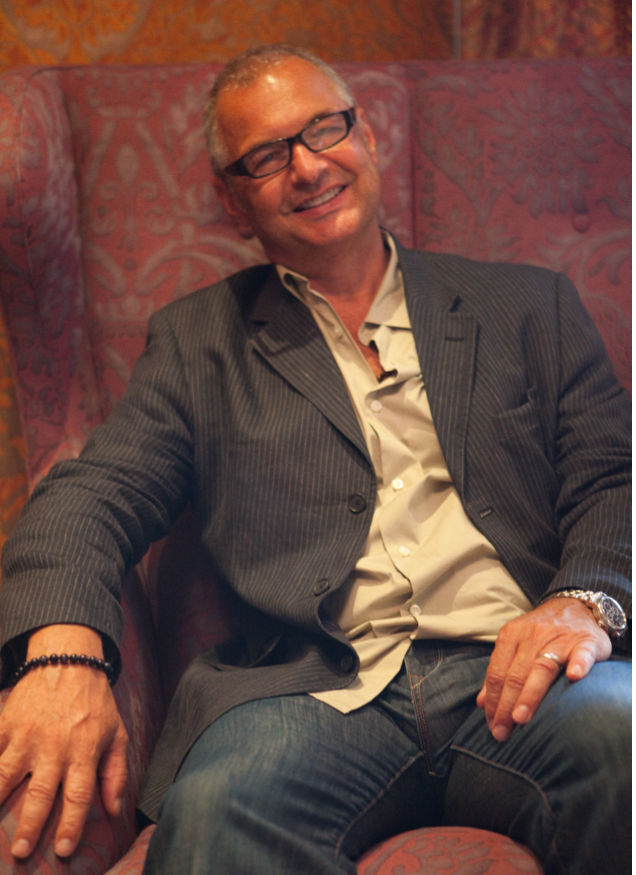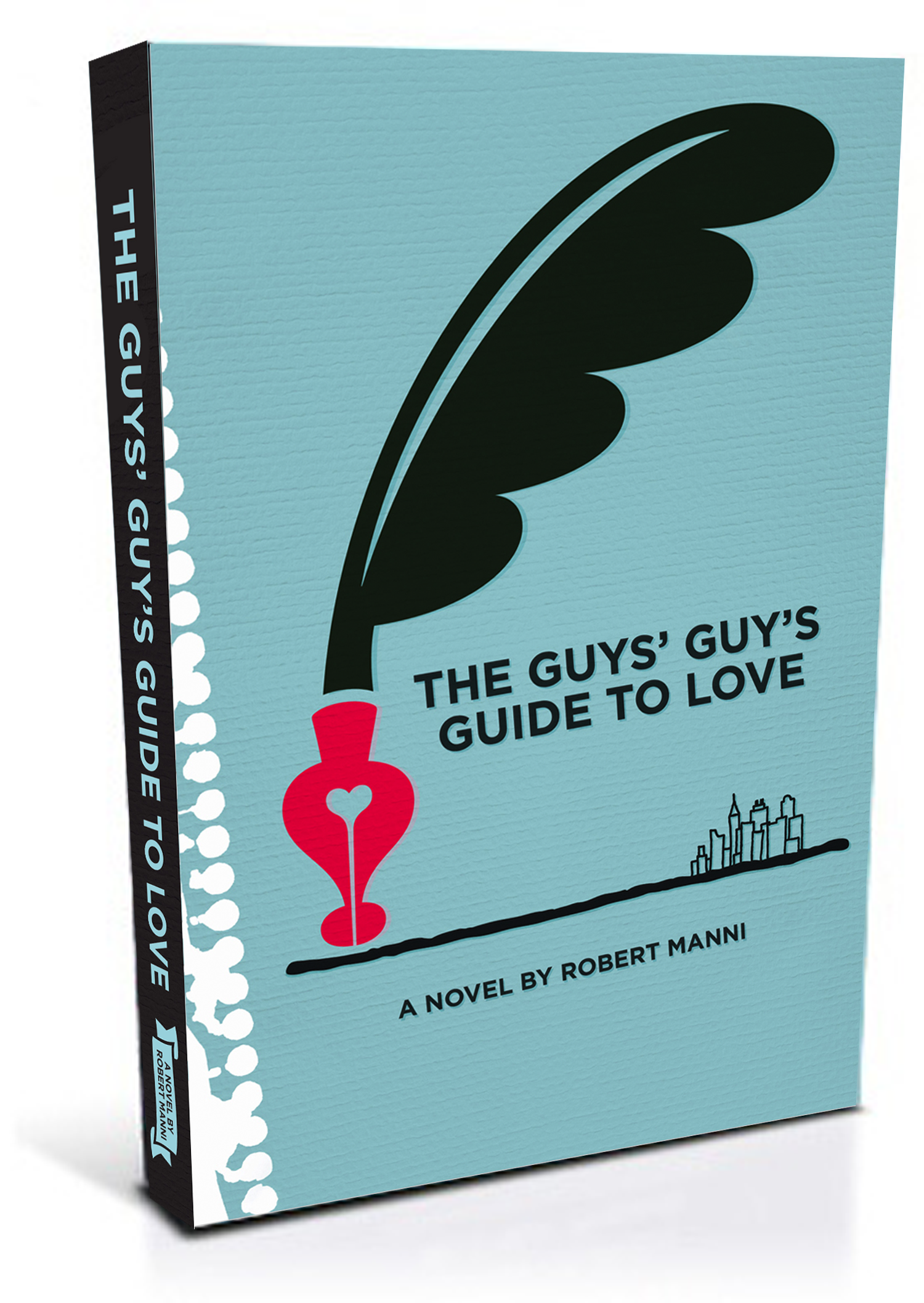Interview with Robert Manni (Part One) – by Matthew (The Bibliofreak)

You’ve worked in advertising for the past two decades, what inspired you to turn your hand to literature and write The Guys’ Guy’s Guide to Love?
About ten years ago I was walking across Sixth Avenue when something inside told me that it was time to get serious about my passion for writing. I read every book that I could get my hands on about writing or subjects that interested me and began writing in earnest.
Before writing this book I noticed a growing chasm between men and women, particularly the ascent of women and the lack of support and thoughtful response from men. That old macho routine was no longer working and it seemed like it was time for a new type of contemporary male to evolve. I call him a “guy’s guy”-the guy who is a bit more casual and generally understanding, but still a man in every sense of the word. Along with these thoughts I was also also fuelled by the irony of this division between the sexes; this despite all the technology that keeps us connected. I hoped these ideas could turn into a story that connected emotionally with readers.
I gave myself ten years to make all of this happen and here we are.
With all that experience it’s inevitable that people will wonder, were any of the characters based on real people you’ve encountered?
When building the cast for GGG2Love I used archetypes. Who hasn’t met a smooth Lothario like Roger Fox or an entitled rich girl like Layla or a type-A Veronica? As choices define characters, in GGG2Love the challenge for the guys, particularly Max, is how they manage their “inner Roger”. Since I used archetypes to build characters, they are not specifically based on real people.
And did you identify with any of the characters yourself?
I found myself relating to all the characters, including the females. They all faced personal challenges and decisions that defined their true character and possibilities for success, failure, and redemption. Max is the universal everyman and hero, Roger, the contemporary sexual male, and Alejandro is the more spiritual modern man – the moral compass of the story.
In the novel you switch between a range of narrative perspectives, did you find it hard to write from the female characters’ point of view – what helped you gain an insight into the female psyche?
I recall reading Michael Crichton’s “Travels” a long time ago. It is a fascinating memoir about his days as a med student. He stressed the equality and similarity of men and women behaviourally. It really hit a nerve with me. Beyond the nuances, I found it much easier to know women when I treated them the same as I treated my best guy friends, instead of as mysterious, unpredictable creatures, although I admit that at times they may seem that way.
I did my best to imagine how I would behave if I were experiencing what one of the female characters was going through. Then I ran things by my female friends to check the emotional content and the latest fashion trends. I feel comfortable because nothing rang false to the women who’ve read the book.
Manhattan, its inhabitants and their lifestyles are central to the book. What is it that excites you so much about the big city?
After travelling for business for about ten years I realized that America is a concept, a grand idea. New York is like that also. It is a special place with powerful creative energy and it is always changing. The city draws talent from around the globe like moths to a flame. From the guy spinning pizza dough to the cab drivers and people you work with, there is a sense of pride and urgency that permeates Manhattan. You can smell clean fresh fish at the Chelsea Marketplace or the stench of the subway on a summer’s day- all within five minutes of each other. The restaurants, bars, and patrons constantly change, as do the neighbourhoods and the people living in them. The array of food is amazing and it’s true, the city never sleeps. Underneath it all, there is a sense of romance that acts like an undertow to even the most mundane activity. You can find new love at the laundry, gym, bookstore or a cooking class. What’s not to like?
The novel presents an interesting discussion about masculinity and modern man. How do you see the role of men and masculinity in today’s society?
Men need to pay attention and face facts. This is the time for women to ascend and I believe that this is a great thing for everyone, including men. But it’s all in how we view a situation. Instead of putting more pressure on men, women are actually taking on more responsibilities and allowing our male roles to evolve. That’s a good thing for men who see this in a positive light. And if they take their frustrations out on women, they will be in deep trouble because women are not going to take a step back. Why should they? The ball is in men’s court.
Few of the characters are irredeemably bad or manipulative, do you think this is representative of business in Manhattan generally?
Sure, there are plenty of bad apples in the big city, but my goal was to show the eternal hopefulness that is baked into humanity. Even history’s most despicable dictators believed that they were doing the right thing, so my focus was on the character’s intention and the possibility of good that resides in everyone. I believe in the now, and no one has convinced me yet that people cannot evolve. Of course many fail, but that does not preclude the inherent ability to change for the good. It can happen.
Spirituality, in one form or another, plays a large role in the book (reiki, etc.). These things must be important to you?
This is the question I was hoping for. Although The Guys’ Guy’s Guide To Love is fast, frothy, and fun, ultimately it is about being self-reflective and doing the right thing.
I’ve been drawn to “spirituality” since early childhood and have no idea why, but once I fell into my studies of Reiki and hypnosis, my energy shifted and my perspective evolved. Everything seems closer and connected now. If this book introduces Reiki to readers then I have achieved something special. I would not have had the energy to overcome the innumerable obstacles I faced while writing this book without my energy work. It is a gift I want to share and I charged this book to do exactly that.
There is a real sense that your characters get what they deserve by the end of the novel, was this internal morality something that was important to you from the outset?
I prefer accentuating the positive and providing possibilities for redemption. Either with characters or with people, I believe in giving everyone a chance, knowing too well that many will fail to live up to my expectations or their own standards. In this novel, as in all stories, the outcome is predicated by the choices the characters make. I left that for them to decide…for now.
Did you have a particular audience in mind when writing the book?
I thought the story would connect with women, men, and readers interested in the world of advertising, New York stories and spirituality. Lately I’ve been getting a lot of emails from men telling me that they have finally read a story about the sexes that resonates. This inspires me to believe that what sets GGG2Love apart from other male versions of “Sex and the City” is that our guys don’t behave like women.







